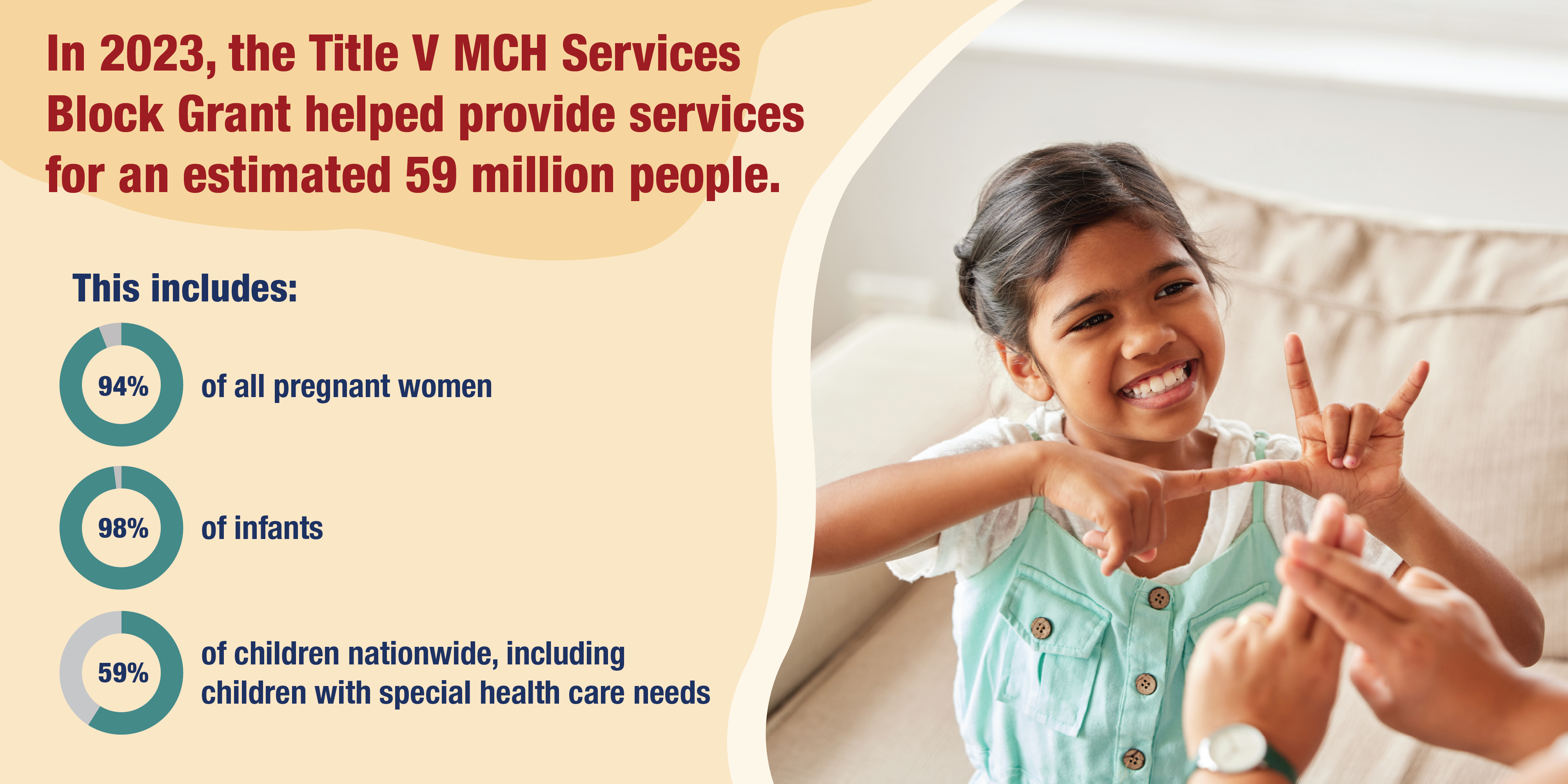We partner with U.S. states and jurisdictions through our Title V MCH Services Block Grant. Together, we improve the public health systems for mothers, children, and their families. This includes support for children and youth with special health care needs.
States decide how to use the funding. This helps them address the priority health needs in their state.
Who do you reach?

View image description
Photo of a smiling child using sign language. Text: “In 2023, the Title V MCH Services Block Grant helped provide services for an estimated 59 million people. This includes 94% of all pregnant women, 98% of infants, and 59% of children nationwide, including children with special health care needs.”
How do you help mothers and children?
Funds from the Title V MCH Services Block Grant help:
- Reduce infant deaths
- Provide better access to quality health care services for:
- Women who need prenatal, delivery, and postnatal care
- Women and children with low incomes who need preventive and primary care services
- Women and children who have trouble finding care where they live
- Children with special health care needs, including rehabilitative services
- Deliver family-centered, community-based, systems of coordinated care for children with special health care needs
- Set up toll-free hotlines so that pregnant women with infants and children who are eligible for Medicaid can apply for that help
How does this funding work?
States apply for funding each year.
The federal government uses a formula to determine the grant amount. We base it on the state’s population size and need.
U.S. states and jurisdictions must match every $4 of federal Title V money they receive with at least $3 of their own.
Learn about the grant
How do you measure impact?
Each year, states report data about their maternal and child health outcomes.
The Title V MCH Services Block Grant uses a performance measurement framework. This system tracks needs and progress toward goals.
The framework includes three parts:
- National Outcome Measures (NOMs) and National Performance Measures (NPMs)
These use population-based, state-level data sourced from national data sets. - Evidence-Based Strategy Measures (ESMs)
States develop and use these to achieve NOMs and NPMs. - State Performance Measures (SPMs)
States may create these to address their priorities that NOMs, NPMs, and ESMs do not cover.
The TVIS tracks this work.
Where can I find training and technical assistance?
Our MCH Resource Centers provide the following:
- Association of Maternal and Child Health Programs (AMCHP)
- CityMatCH
- State Oversampling in the National Survey of Children's Health
How long has this grant existed?
Since 1935, the Social Security Act has provided funding for the Title V MCH Services Block Grant.